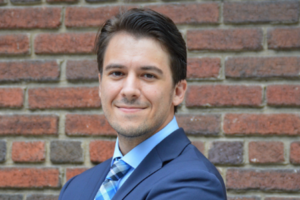 On Rockefeller College of Public Affairs & Policy Week: Waiting in line is no one’s idea of a good use of time.
On Rockefeller College of Public Affairs & Policy Week: Waiting in line is no one’s idea of a good use of time.
Stephen Holt, assistant professor of public management, examines why some groups wait more than others for routine appointments.
Stephen B. Holt is an assistant professor of public management at the Rockefeller College of Public Affairs and Policy at the University at Albany, SUNY. His research focuses on public sector workforce dynamics, public organization performance, and education policy and administration. In particular, he focuses on the role of representation and motivation in public workers’ delivery of effective and equitable services.
It’s About Time: Inequality in Time Spent Waiting
We have all experienced unexpected waits to receive needed services, perhaps at the doctor’s office or getting groceries, that disrupts our day and leaves us with less productive time.
Since persistent economic and social inequalities impact many other aspects of daily life, from the neighborhoods we live in and schools we attend to the jobs and services available to us, I wondered whether low-income households faced even longer wait times for services.
Having done research on Americans’ time use, I consulted the American Time-Use Survey – time diary data collected by the Bureau of Labor Statistics from a national sample of Americans – and looked at the difference in time spent waiting for services between people in low-income households and people in high-income households.
Sure enough, on a typical day when some waiting occurs, a person making less than $20,000 per year will spend about 45 minutes waiting. Meanwhile, someone making $150,000 or more per year spends only 29 minutes waiting when they have to wait for services – 16 fewer minutes wasted.
Using the data to adjust for other differences between these two groups – like time spent working, education, demographics, use of services, and so on – this gap amounts to low-income people spending between 7 and 40 additional hours per year waiting for things like groceries, medical services, educational services, and other needs.
Notably, for Black Americans, the link between income and waiting is severed; high-income Black Americans wait as long or longer than low-income Americans regardless of race.
This carries obvious equity implications. Our time is one truly scarce resource, and it is troubling that society systematically de-values the time of those living in poverty. Worse, the waiting gap creates yet another barrier to accessing routine and needed services for those who can least afford it.
Read More:
[Examining Inequality in the Time Cost of Waiting

Comments
One response to “Stephen Holt, University at Albany – It’s About Time: Inequality in Time Spent Waiting”
Women can expect to wait even longer than men at any economic level.